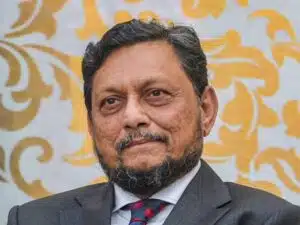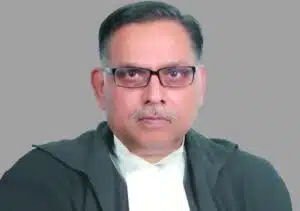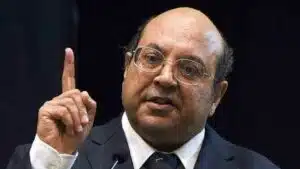Simplifying Your Life & Law | Legal Drafting services
Dhananjaya Yeshwant Chandrachud is the current judge of the Supreme Court of India. He was formerly the chief justice at Allahabad High Court and was also a judge in the Bombay High Court. He was born on 11 November 1949.
Background
Justice Dhananjaya Yashwant Chandrachud was born in a Marathi family on 11 November 1949. His father served the longest as chief justice of India and his mother was a classical musician. His schooling is done at two places i.e. Cathedral and John Connon School, Mumbai and St. Columba’s School, Delhi. He graduated in 1979 from Saint Stephen’s College, New Delhi. He was a graduate in economics and mathematics honors. After this, he obtained the degree of LLB from Delhi University in 1982 and obtained the degree of LLM from Harvard University in 1983. He received the Joseph H Beale price at Harvard University. He also received his doctor of juridical science from the same University. He studied his doctorate thesis on affirmative action.
Career
A very few jobs were available for the young graduates when Dhananjay graduated from Delhi University. He associated various lawyers and judges as a junior advocate. After this, he joined the LLM program. After getting his LLM degree from the Harvard University, he started his work at a law firm but there existed strong bias against Indians. He came back and practice law at the Supreme Court of India and also the Bombay High Court and was designated as a senior advocate in 1998.
In his appointment as a judge, he was the additional solicitor general of India and became a judge in 2000 in the Bombay High Court. Later he was appointed as the chief justice of the Allahabad High Court in 2013. He was appointed as a judge in the supreme court in 2016.
He continues as a professor at Oklahoma University School of Law, USA, and at the University of Mumbai. He has also delivered lectures in Melbourne Law school, Australian National University, Yale Law school, etc.
Some of his notable judgments are-
- In the case of Justice K. S. Puttaswamy (Retd.) and Anr. Vs Union Of India And Ors. Justice Chandrachud grounded the right to dignity, liberty, integrity, autonomy, and other rights. He stated the dignity cannot exist in the absence of privacy. He said that privacy is the ultimate sanctity of an individual and protects a zone of choice and self-determination.
- In the case of Indibility Creative Pvt Ltd v State of West Bengal, he termed dissent as the safety valve of democracy. He authorized imposing a fine on the state of West Bengal and granted compensation for not allowing the screening of the movie, Bhobishyoter Bhoot. He stated that instead of prohibiting the screening of the movie, police protection must be provided. He stated that Free speech should not be gagged for the fear of.
- In the case of the Indian Young Lawyers Association v. the State of Kerala, he held that the prohibition of menstruating women from entering the Sabarimala temple violated the fundamental rights of women. He also held that the Constitution does not permit this as a basis to stop the menstruating women from entering the temples, it is a physiological feature and has no significance to intrude in her equal entitlement under the constitution.
- In the case of Joseph shine v Union of India, he declared the provision of IPC concerning adultery as unconstitutional. He stated that the ability to make choices in marriages is a part of human liberty and dignity and is protected by the constitution. The assumption of the consent of a woman to sexual relations while entering into a marriage has no place in the constitutional order.
- In the case of, The Secretary, Ministry of Defence v Babita Puniya, Dhananjaya directed consideration of all the government officers, for the grant of equal permanent commissions just like their male counterparts. It was contended by the government that, unlike women, when appointed at hazardous duties, and that equal physical performance was not possible among men and women. Chandrachud in this case stated that it is a greater channel for women two face the hazards of duty. The mindset of societies should be changed. This judgment was reported as a landmark verdict nationally and internationally.
Dissents
It rarely happens that a junior advocate disagrees with the chief justice of India, but Chandrachud has at least 4 times dissented chief justice and persuaded him to change his view.
Two of such instances are the national anthem case and the Hadiya case. The course of these cases was changed completely due to questioning by Chandrachud. In the final ruling, the interim order amount in favor of individual Liberty. In the Bhima-Koregoan case, specific directions to list the case letter were given by justice Chandrachud and presumably prevailed over CJI Mishra again




